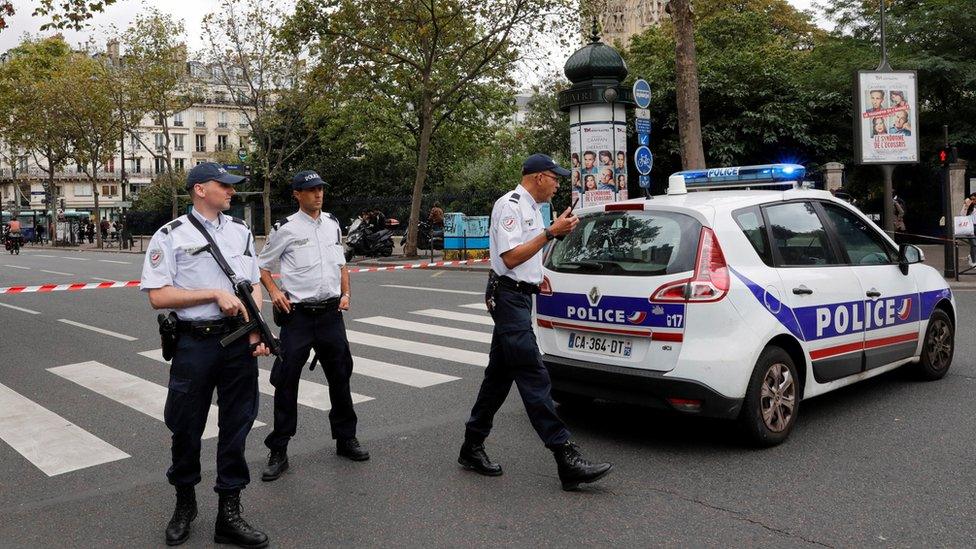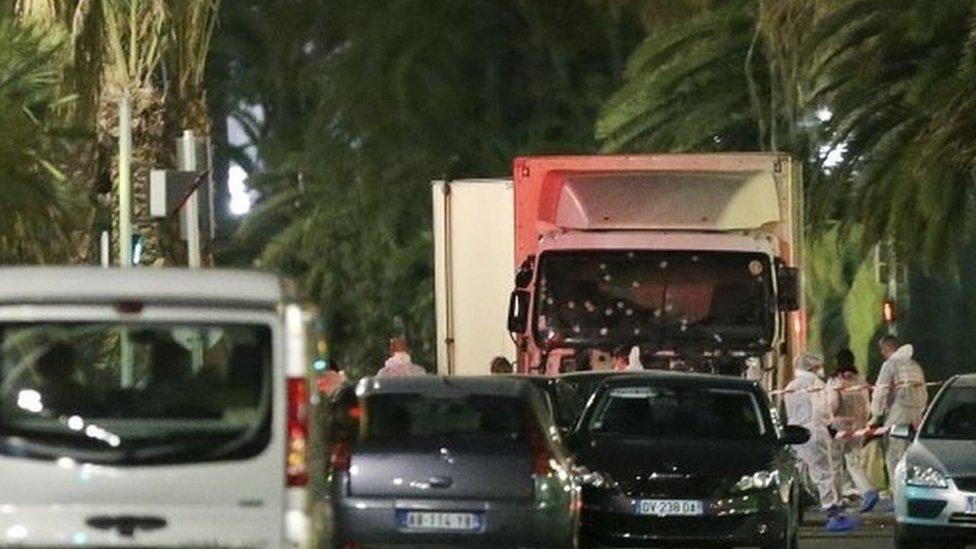IS group to step up attacks on Europe - Europol
- Published

France has been under heightened security since the November 2015 Paris attacks
Europol has warned that militants from so-called Islamic State (IS) will aim to step up attacks on European targets, as they face defeat in the Middle East.
The European police force says more foreign fighters will try to come back to Europe, and "several dozen" capable of attacks could already be there.
Their tactics could include car bombs, kidnappings and extortion, it said.
But the report plays down the likelihood of attacks on critical infrastructure, such as nuclear sites.
Rob Wainwright, Director, Europol: "It is important that we have a concerted European response to deal with the threat"
It says that IS militants now prefer soft targets, and there is now a greater emphasis on "lone actors" such as the perpetrator of the lorry attack in Nice in July.
It warns that some Syrian refugees in Europe may be vulnerable to recruitment by extremists who infiltrate refugee camps.
Europe has been shaken by a series of attacks in recent years blamed on IS militants.
'Threat still high'
The report said the EU faced a range of threats and attacks, external from both organised networks and lone actors, either directed or inspired by IS and involving a range of weapons including bladed weapons and vehicles.
Home-made, commercial and military explosives in improvised devices such as those used in Syria and Iraq had not yet been used in Europe but this was "conceivable... at some stage", it added.

Major recent terror attacks in Europe

More than 80 people were killed by a lorry in Nice in July
January 2015 - Massacre at the Paris office of satirical magazine Charlie Hebdo and siege at a Jewish supermarket
November 2015 - Attacks on Bataclan concert hall and bars and restaurants in Paris. 130 killed
March 2016 - Suicide bombings in Brussels airport and metro leave 32 dead
14 July 2016 - More than 80 people killed after a lorry ploughed into a crowd in the southern French city of Nice during Bastille Day celebrations
18-24 July 2016 - Series of violent attacks in various locations in southern Germany leave 10 dead
26 July 2016 - Priest Fr Jacques Hamel killed in knife attack in French church

"The so-called Islamic State has proven to be very effective in inspiring people to commit terrorist acts and in setting attacks in motion themselves," the report said.
Captured fighter Nicolas Moreau gave details about IS’s external operations department
Europol Director Rob Wainwright told the BBC that improved collaboration between European intelligence agencies had reduced the chances of large-scale attacks.
But he cautioned against complacency regarding potential terrorists: "They're resorting to random attacks by lone actors," he said.
"The threat is diverse and challenging as we have to make sure our intelligence collection and exchange is up to the mark so we can identify who among them pose the greatest danger."
Other key points of the report:
Any EU member states involved in the US-led coalition against IS, not just France and Belgium, could be targeted
Same modus operandi as in previous attacks the most probable scenario
IS expected to start planning and dispatching attacks from Libya
Increase in contact between terrorists and career criminals
As well as IS, al-Qaeda-affiliated and other groups continue to pose a serious threat